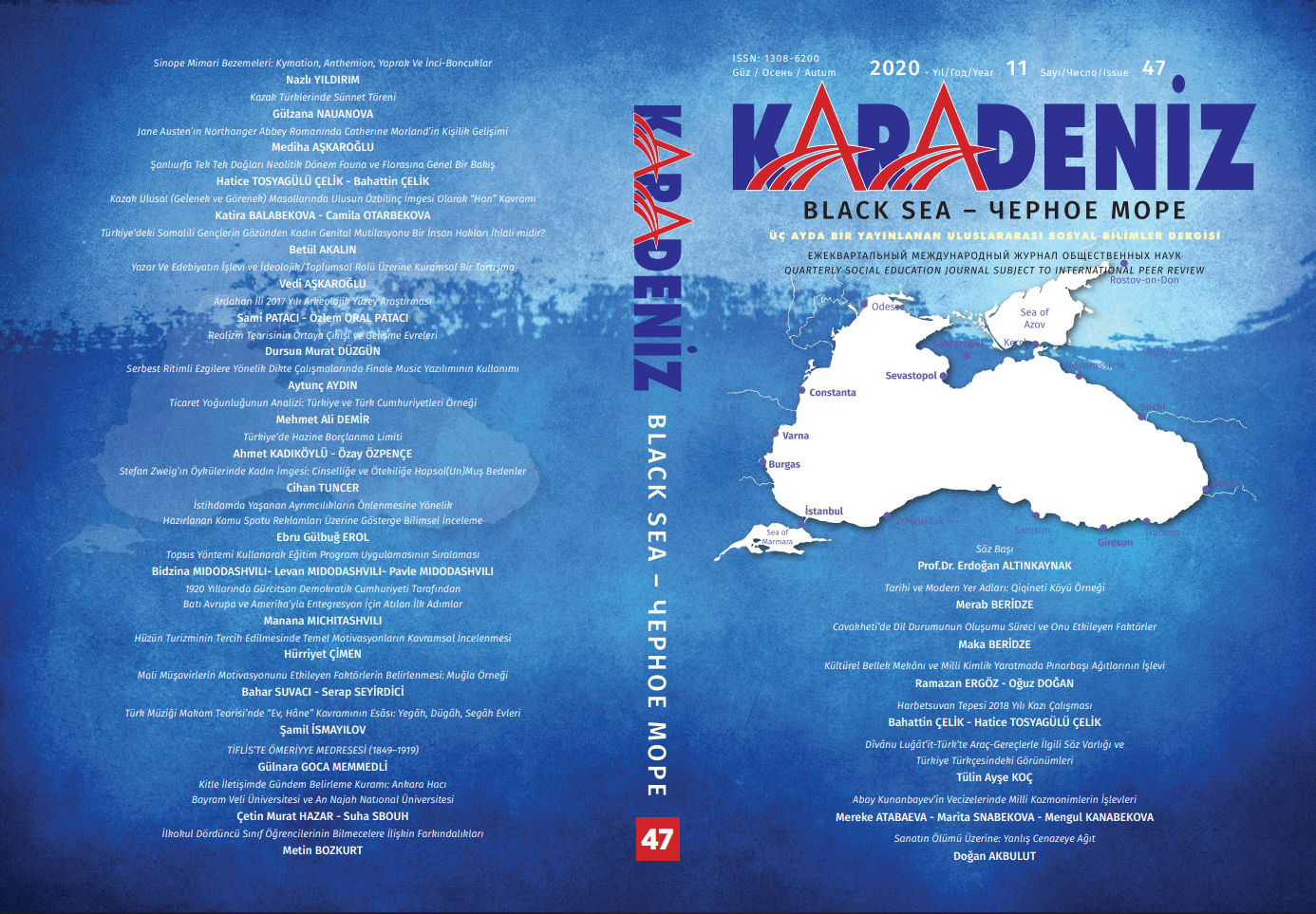KAZAK ULUSAL(GELENEK VE GÖRENEK) MASALLARINDA ULUSUN ÖZBİLİNÇ İMGESİ OLARAK “HAN” KAVRAMI
CONCEPT «KHAN» IN KAZAKH LIFE AND TRADITIONAL FAIRY TALES AS A VIEW OF KAZAKH MENTALITY
Author(s): Katira Balabekova, Camila OtarbekovaSubject(s): Studies of Literature, Lexis, Semantics
Published by: Kültür Ajans Tanıtım ve Organizasyon
Keywords: concept of the khan; linguostatistics; folklore; folk tales; ethnocultural; lexical layer; mentality;
Summary/Abstract: The article states that the lexical and semantic background of the language units of folk tales contains cognitive information about the centuries-old worldview of the people, the conceptual analysis of which can determine the unity of the national worldview and general spiritual concepts. Folklore texts are important in recognizing the mental nature of the Kazakh people and determining the basic basis of folk culture, because they are, in fact, the "memory" of the people, an indicator of the high culture of the people. One of the concepts that allows to better understand the mentality of the people, to penetrate the spirit and see the world image of the nation through the eyes of this nation - the concept of the khan. After all, the frequent occurrence of the word khan is a reflection of the social structure of that period, the system of governing the country. Thus, in the fairy tale about the khan, all his qualities: strengths and weaknesses, positive and negative habits, intelligence and humanity, customs and traditions, etc. The warehouse of ethnocultural information, which provides such features and valuable information, will be the basis for the formation of the conceptual framework. The result linguostatistic analysis of fairy tales, it became known that the Kazakh fairy tales found a very large number of words "Khan" and the word king is very little that he found in fairy tales, common to the Turkic peoples, which are considered today in a group of short stories tales. And in the Turkic and Uzbek folk tales, as the ruler of the country, the Royal word asset was spent. In contrast to the peculiarities of the use of Khan and Royal words in each national lexicon, it can be noted that in the languages belonging to the Oguz branch of the Turkic languages, the Royal word prevails, and in the languages of the Kipchak group, the word Khan is widely used. Thus, the lexical layer of folk tales can become a means of learning the indigenous vocabulary of this people, learning through it the linguistic and cultural reality.
Journal: Karadeniz Uluslararası Bilimsel Dergi
- Issue Year: 2020
- Issue No: 47
- Page Range: 169-182
- Page Count: 14
- Language: Turkish

